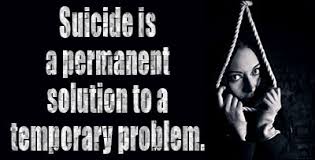Research Shows Suicide Link To Unemployment
Wednesday 18 November, 2015 Written by The Lancet Psychiatry
A new study published in The Lancet Psychiatry finds that between 2000 and 2011, unemployment was the cause of approximately 45,000 deaths by suicide around the globe each year, and it accounted for around nine times as many suicides as the recession, which first hit in 2008.
Unemployment was found to account for nine times as many suicides as the economic recession.
Lead author Dr. Carlos Nordt, of the University of Zurich Psychiatric Hospital in Switzerland, and colleagues say the findings indicate that governments need to increase focus on reducing unemployment in order to lower its impact on suicide.
To reach their findings, the researchers assessed data from the World Health Organization (WHO) mortality database and the International Monetary Fund's World Economic Outlook database.
The team used longitudinal modeling to calculate the effect unemployment had on suicide in 63 countries over four world regions between 2000 and 2011. The researchers note that they looked at this period so they could analyse the data in times of economic stability (2000-07) and in times of economic crisis (2008-11).
Suicide interventions required in times of economic stability and economic crisis
The researchers found that over all regions included in the analysis, the rate of suicide associated with unemployment increased by 20-30% in 2000-11.
They estimated that around 233,000 suicides took place each year during this period, and unemployment accounted for around 45,000.
Perhaps most interestingly, the researchers found that unemployment was associated with 41,148 suicides in 2007 and 46,131 in 2009, which suggests that the recession in 2008 was responsible for 4,983 additional suicides. This indicates that unemployment is responsible for nine times as many suicides as the economic crisis.
The team also found that suicide rates tended to increase 6 months before a rise in unemployment rates, and that increasing unemployment rates affected men and women equally - a finding that challenges that of previous studies.
"What is more," the team adds, "our data suggest that not all job losses necessarily have an equal impact, as the effect on suicide risk appears to be stronger in countries where being out of work is uncommon. It is possible that an unexpected increase in the unemployment rate may trigger greater fears and insecurity than in countries with higher pre-crisis unemployment levels."
Based on their findings, the researchers say suicide interventions need to be put in place that focus on the negative health effects of unemployment in times of economic stability and economic crisis. Dr. Nordt adds:
"Besides specific therapeutic interventions, sufficient investment by governments in active labour market policies that enhance the efficiency of labour markets could help generate additional jobs and reduce the unemployment rate, helping to offset the impact on suicide."
Suicides attributable to economic crisis 'just the tip of the iceberg'
In an editorial linked to the study, Roger Webb and Navneet Kapur, both of the University of Manchester in the UK, say the number of suicides resulting from the economic crisis may only be the "tip of the iceberg," noting that it is likely to have caused many other issues.

Leave a comment
Make sure you enter all the required information, indicated by an asterisk (*). HTML code is not allowed.
Join
FREE
Here










